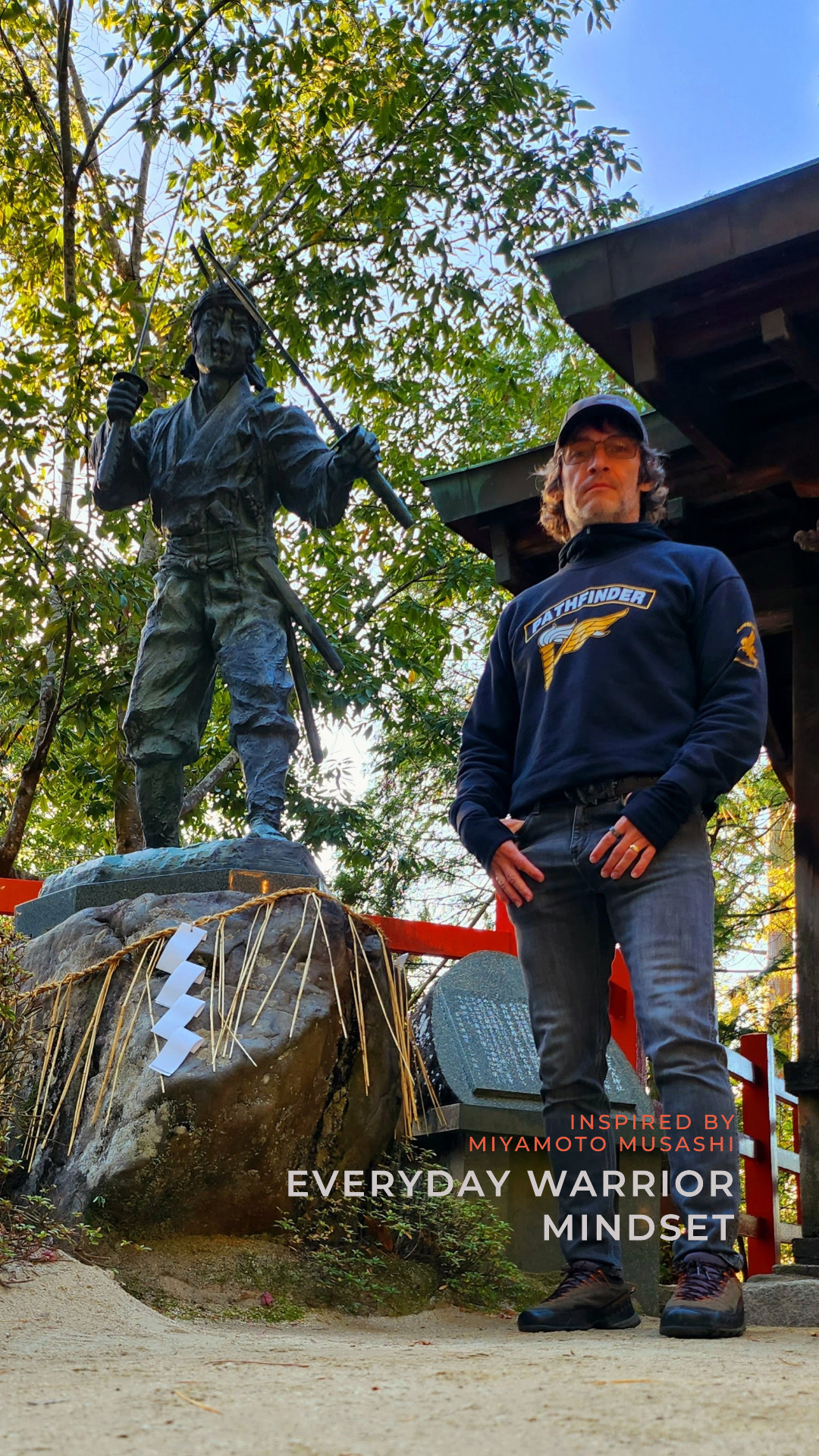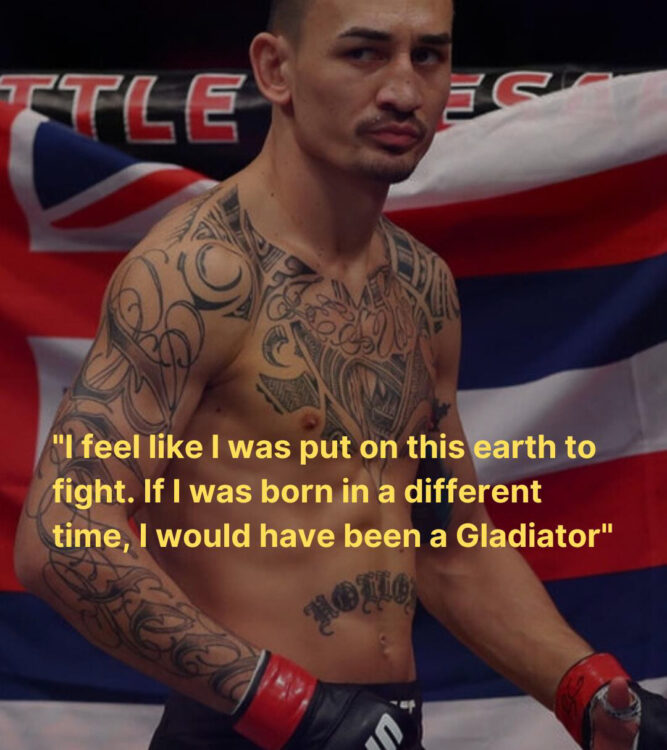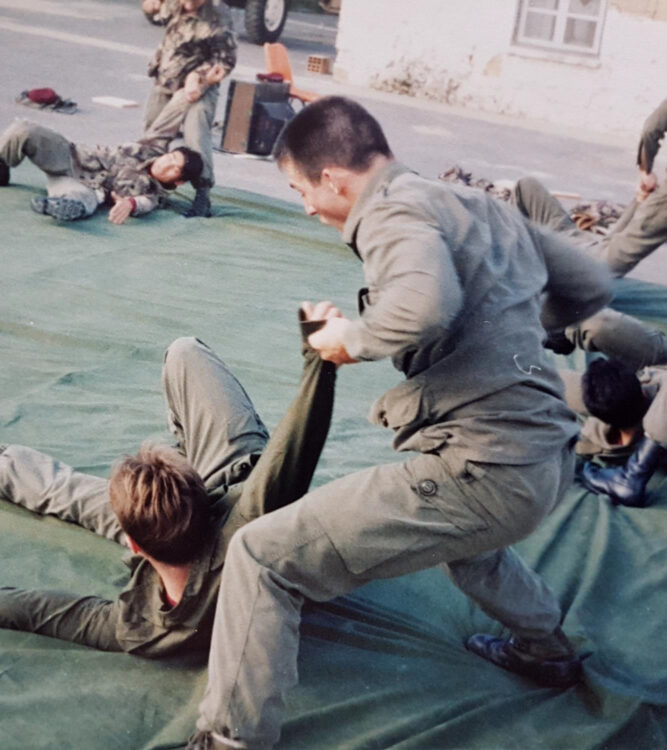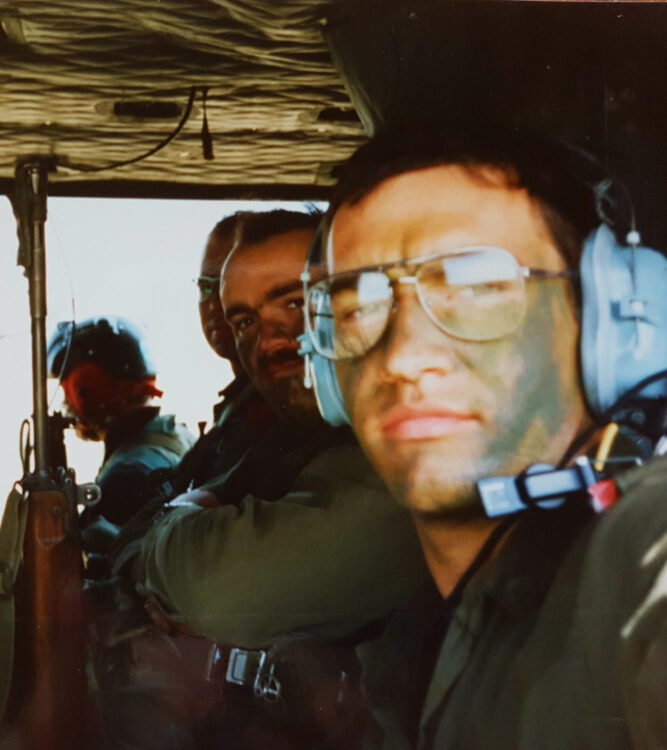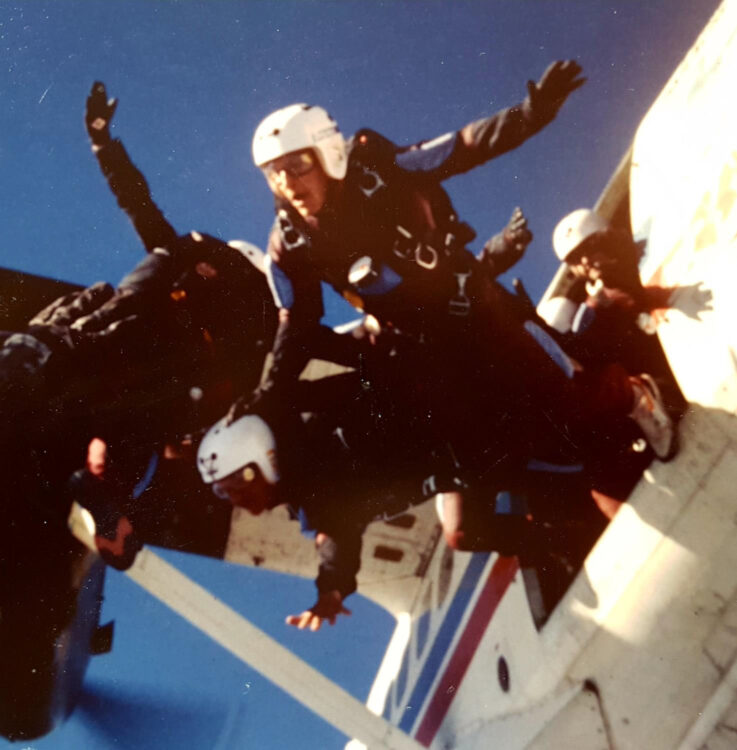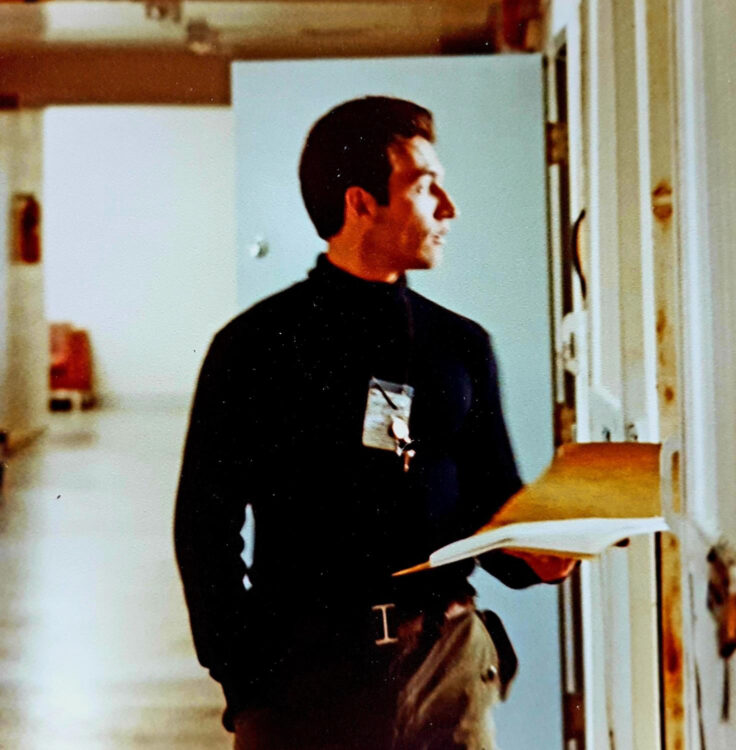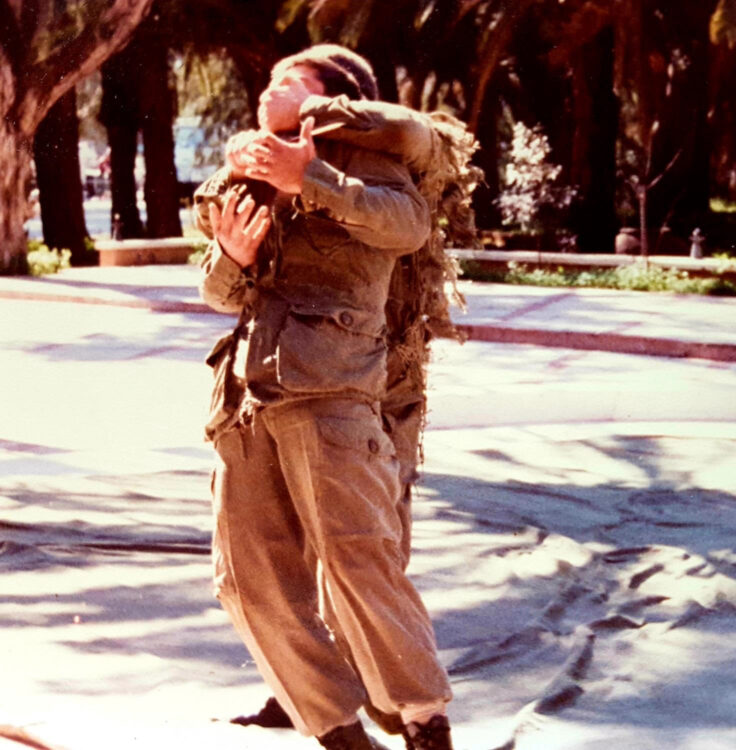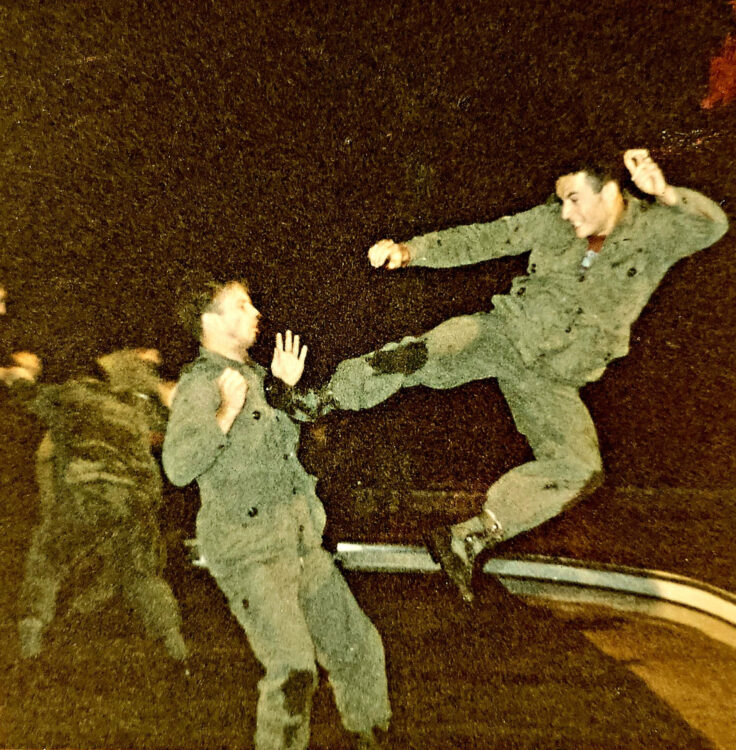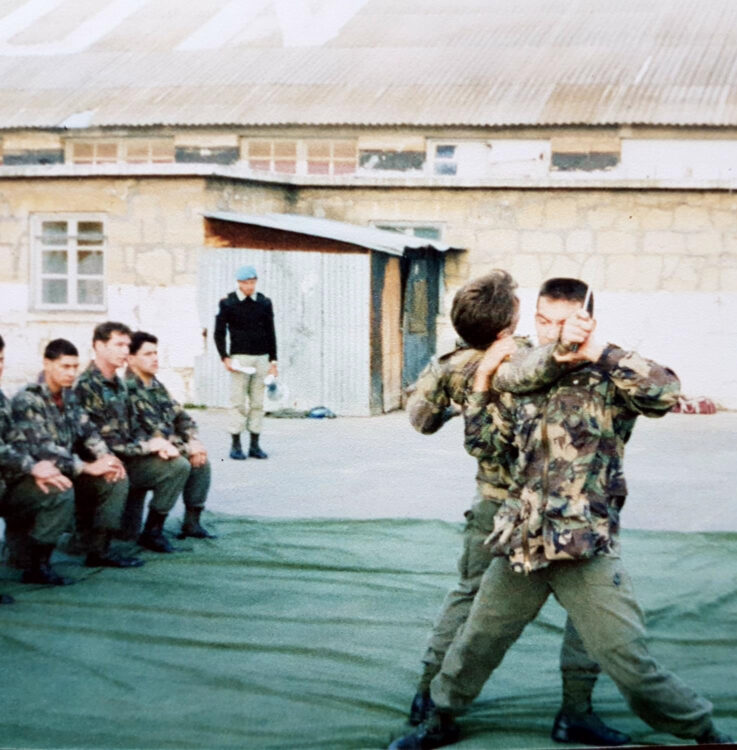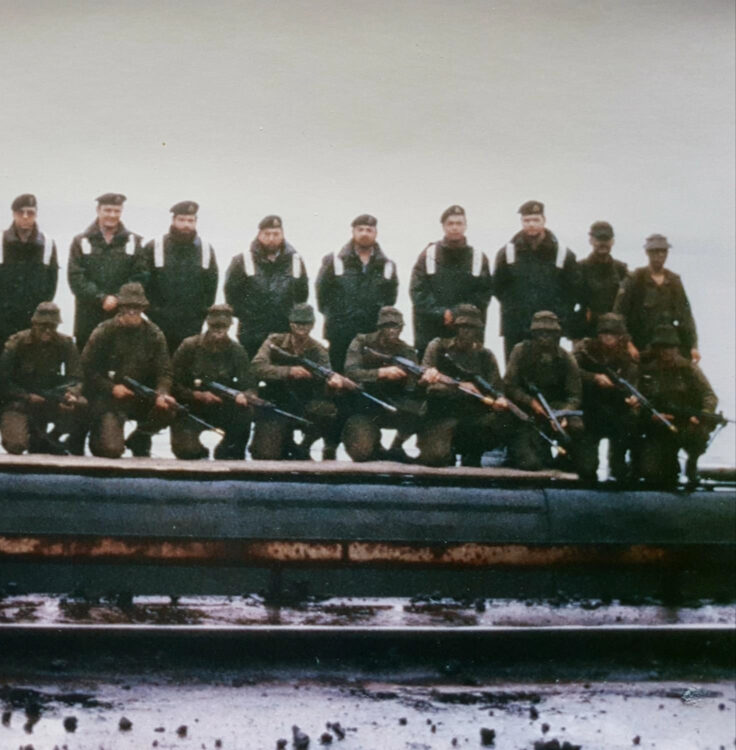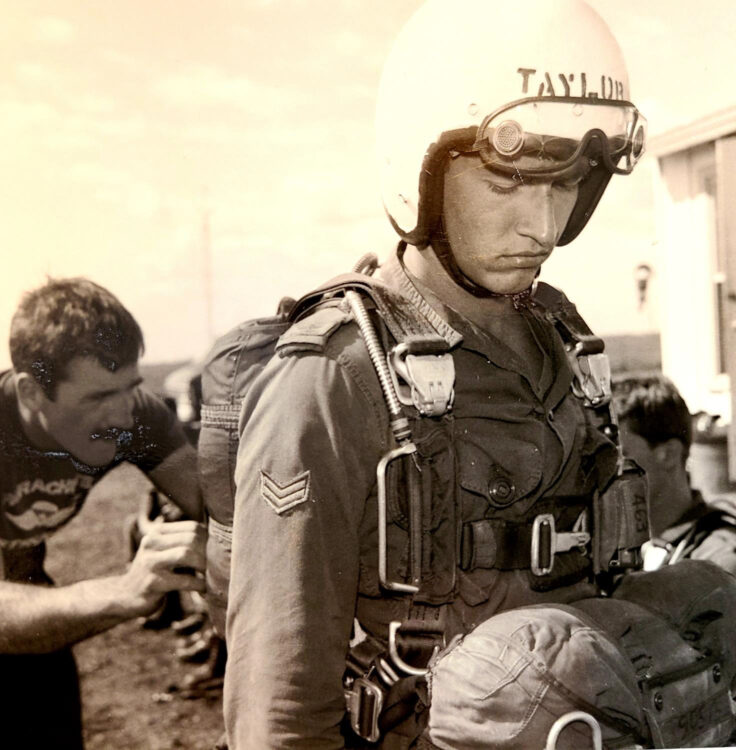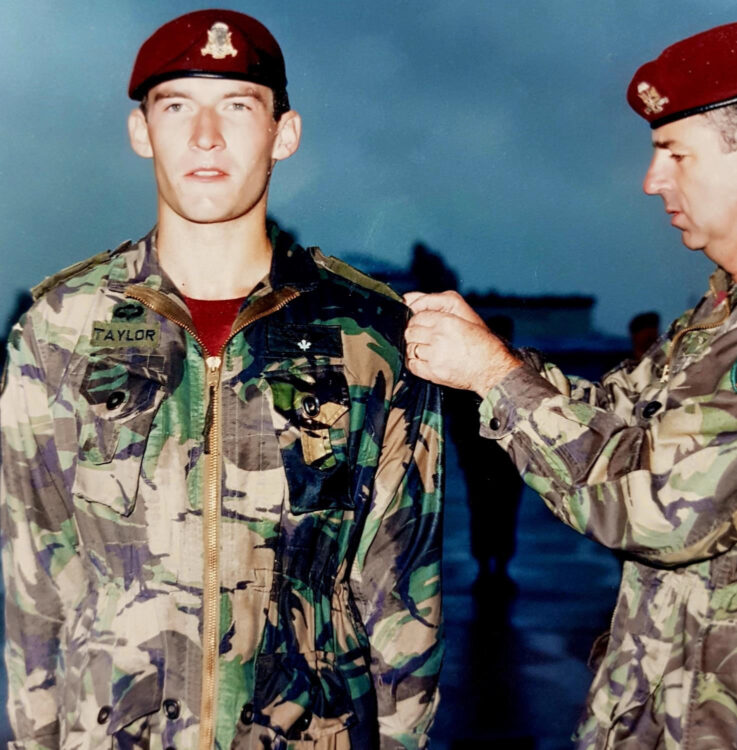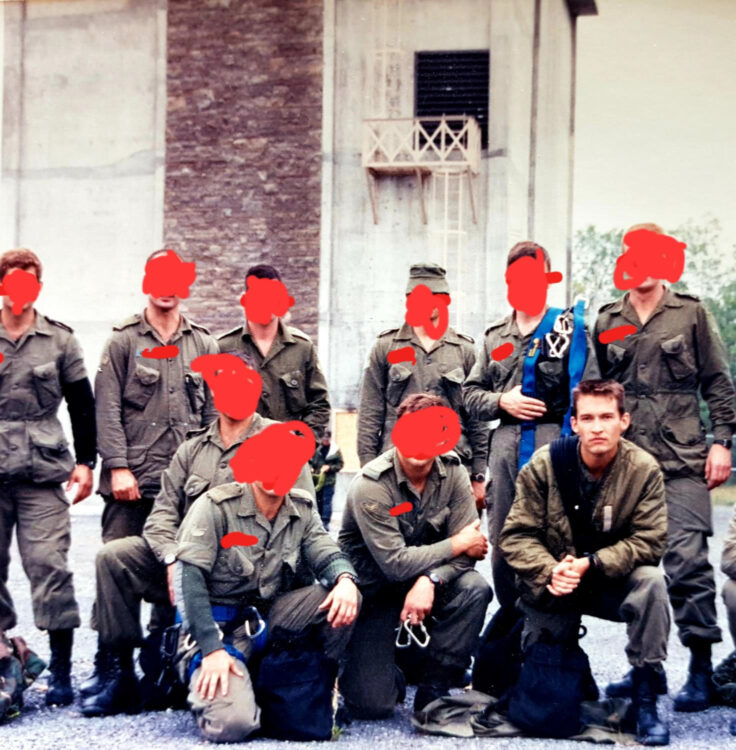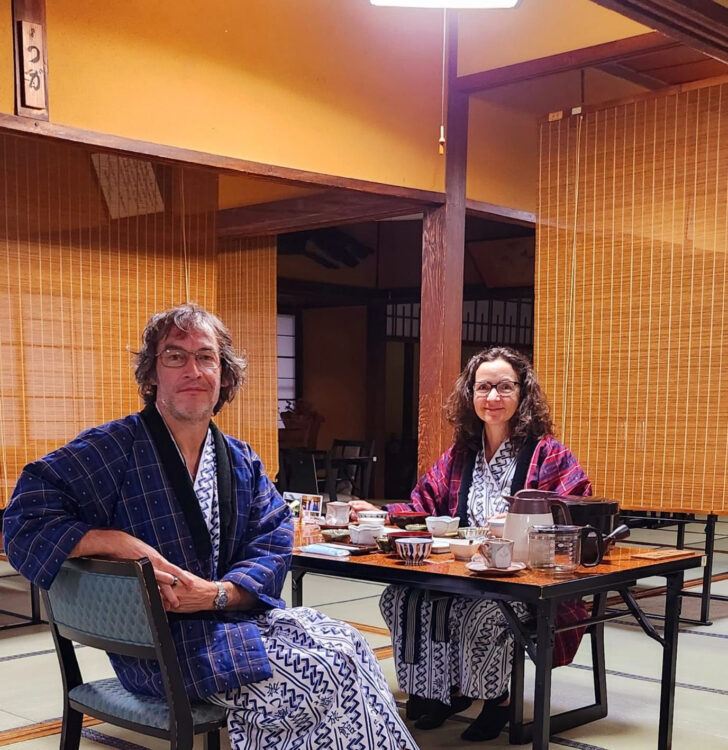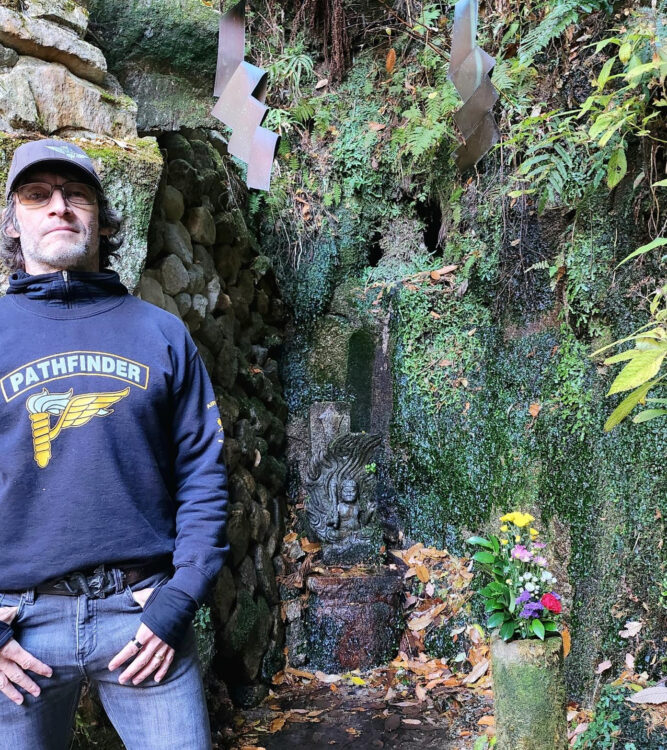INTRODUCTION
This evening, we will explore some of the profound insights and teachings of the legendary samurai warrior, Miyamoto Musashi, and how his philosophy on mindset can empower us to become “Everyday Warriors” – individuals who face life’s challenges with resilience, adaptability, and a relentless pursuit of growth towards excellence.
ESTABLISHING WHAT EVERYDAY WARRIOR MINDSET IS
“If I was born in a different time, I would’ve been a gladiator.” – Max Holloway, quoted this week during an interview in his leadup to UFC 300.
I understand that feeling, that thought process, that mind set. I feel the same way. If not a gladiator, then a Viking Berserker, a Spartan, or Samurai, or Celtic warrior. I can relate to a lot of warrior cultures.
From an early age I could feel the warrior inside of me though I didn’t know what it was, the moment I entered the military I was surrounded by a warrior culture. It felt right.
During my military career I was surrounded by enough warriors, and exposed to enough experiences, that I began to shape my own warrior mindset. A psychological attitude characterized by mental toughness, resilience, focus, determination, and a willingness to face challenges head-on.
Resilience: Warriors possess the ability to bounce back from setbacks, failures, and adversity. They understand that obstacles are a natural part of life.
Courage: Warriors typically exhibit bravery and fearlessness in the face of adversity, danger, or conflict. They are willing to confront challenges and risks, even at great personal cost.
Strength: While physical strength may be a component, warriors also possess inner strength, resilience, and fortitude. They are mentally and emotionally tough, able to withstand hardship and persevere in difficult circumstances.
Skill: Warriors often possess specialized skills and expertise relevant to their role or profession. This might include combat training, tactical knowledge, leadership abilities, or other competencies essential for their duties.
Honor and Integrity: Many warrior traditions emphasize principles of honor, integrity, and ethical conduct. Warriors adhere to codes of conduct or moral values that guide their actions and interactions with others.
Focus: Warriors maintain a clear and unwavering focus on their goals and objectives. They prioritize what is most important and stay committed on behalf of the mission, avoiding distractions, and maintaining mental discipline.
Adaptability: Warriors are adaptable and flexible, able to adjust their strategies and tactics as circumstances change. They understand the importance of being agile and versatile in dynamic environments.
Discipline: Warriors adhere to strict self-discipline, following routines and habits that support their physical, mental, and emotional performance requirements. They understand the importance of consistency and self-control in achieving their goals of performance and readiness.
Mindfulness: Warriors practice mindfulness, staying present in the moment and maintaining awareness of their thoughts, emotions, and surroundings. This allows them to make clear-headed decisions and respond effectively to realtime fluid challenges.
Purpose: Warriors have a strong sense of purpose and meaning in their actions. They understand why they are fighting or striving towards their goals, which fuels their motivation and determination.
Compassion: Warriors typically serve the defenseless, elderly, children, and the future of their communities. A core aspect of a warrior is defending those who can’t defend themselves, lending a helping hand in times of disaster, aiding those less fortunate.
Loyalty: Warriors often demonstrate loyalty and commitment to their comrades, leaders, or cause. They prioritize the well-being of their group or community and are willing to make sacrifices for the greater good.
Leadership: Warriors learn to lead; the warrior culture creates leaders at a variety of levels. Many warriors assume leadership roles within their communities or organizations, guiding and inspiring others through their actions, example, and wisdom.
Selflessness: Warriors are willing to sacrifice themself for the good of others. Warriors often see themselves as serving a higher purpose, whether that’s protecting their people, defending their homeland, or upholding justice and righteousness.
Training and Preparation: Warriors undergo rigorous training and preparation to develop their skills, knowledge, and readiness for combat or other challenges they may face.
Overall, a warrior mindset is not just about physical strength or combat prowess: it’s about cultivating inner strength, resilience, and mental fortitude to overcome obstacles and achieve success in all areas of life. What defines a warrior is more than just their outward appearance or actions; it’s their adherence to a set of values, principles, and ideals that shape their identity and guide their behaviour.
INTRODUCTION TO MIYAMOTO MUSASHI’S MINDSET
Miyamoto Musashi, often regarded as one of Japan’s greatest swordsmen and strategists, employed a unique and multifaceted mindset that contributed to his success in both martial arts and strategy. Here are some key aspects of his mindset:
Mushin (No-Mind): Musashi practiced the concept of Mushin a state of mind where the practitioner is not fixed on any one thought or emotion, but rather remains calm, focused, and present in the moment. A state of heightened awareness and focus in the present moment. This mental state allowed him to react swiftly and effectively to his opponent’s actions without being clouded by distractions or hesitation.
Applying this in daily life means being fully engaged in the task at hand, avoiding distractions, and making decisions with clarity and decisiveness.
Fudoshin (Immovable Mind): Musashi cultivated a mindset of Fudoshin which means having an immovable or unwavering spirit. This mental resilience allowed him to endure hardships, setbacks, and even fear without losing his composure or determination.
Applying this in daily life means you can learn to observe your emotions without letting them control you. Allowing you to stay centered, quieting the emotional noise, promoting clearer thinking, leading to well-considered decisions based on reason.
Introspective: Musashi believed that the key to overcoming obstacles lies in introspection and developing one’s own inner resources, rather than seeking external solutions. This philosophy of self-reliance and mastery of one’s mind and spirit is a core tenet of the samurai code of Bushido.
Applying this in daily life allows you to enhance your self-awareness, improve decision-making, creates better emotional regulation, creates stronger relationships, and identifies areas for improvement allowing future personal growth.
Zen Influence: Musashi was influenced by Zen Buddhism, particularly in his approach to swordsmanship and life in general. Zen teachings emphasize mindfulness, simplicity, and direct experience, all of which contributed to Musashi’s mindset of clarity, focus, and non-attachment.
Applying this in daily life allows you to live in the now, rather than dwelling on the past or fretting about the future.
Single-Mindedness: Musashi believed in the power of single-minded focus and dedication to one’s goals. He famously wrote, “From one thing, know ten thousand things,” suggesting that mastery of one skill or discipline can lead to insights applicable across various domains.
Applying this in daily life allows you to complete tasks efficiently and at a high standard which is a great motivator. Through a singular dedication to a goal, you may be introduced to depths of knowledge and understanding you never thought possible, allowing for the realization that there are deep levels to every game.
Adaptability: Musashi emphasized the importance of being adaptable in any situation, and not relying on the same approach after an initial failure. He advocated for a mindset that could adjust to changing circumstances, opponents, and environments. This adaptability allowed him to improvise tactics on the spot and exploit his opponent’s weaknesses. This aligns with the samurai principle of being able to improvise and exploit weaknesses in the moment.
Applying this in daily life allows a person to be more open-minded, willing to try new approaches, and not rigidly sticking to a single plan of action. Adapting to challenges and unexpected situations is a crucial skill.
Strategic Thinking and Foresight: Musashi was not just a skilled swordsman, but also a brilliant strategist. He approached combat and life with a strategic mindset, always thinking several moves ahead and considering the long-term consequences of his actions.
Applying this in daily life involves taking a step back, analyzing situations from multiple angles, and making decisions with a broader perspective in mind.
Continuous Improvement: Despite his legendary status, Musashi remained committed to self-improvement and lifelong learning. He constantly sought out new challenges and experiences to refine his skills and deepen his understanding of the martial arts and human nature.
Applying this in daily life you can start connecting more and more diverse skills into a network of interconnected understandings. If you embrace challenges broadly enough, and read and think widely enough, you will be able to engage with any person standing next to you in any part of the world.
Acceptance of Death: Musashi emphasized the importance of accepting death as a core principle of the warrior’s way, enabling a Samurai to face battles and duels without hesitation. He extended this beyond the battlefield, suggesting that accepting death freed everyday life from unnecessary anxiety about the natural course of existence.
Balance: Musashi’s ability to achieve excellence in both martial and artistic endeavours show a disciplined appreciation of balance. His mastery of both large and small scale strategy provides lessons for today’s leaders. And his combination of physical and psychological skills while fighting duels showed an understanding of how to control the present moment.
“When you appreciate the power of nature, knowing rhythm of any situation, you will be able to hit the enemy naturally and strike naturally. All this is the Way of the Void.”
“I studied morning and evening searching for the principle, and came to realize the Way of Strategy when I was fifty. Since then I have lived without following any particular Way. Thus with the virtue of strategy I practice many arts and abilities – all things with no teacher.”
Overall, Miyamoto Musashi’s mindset was characterized by adaptability, mindfulness, resilience, discipline, focus, strategic thinking, and a relentless pursuit of excellence. These qualities not only made him a formidable warrior but also a timeless source of inspiration for individuals seeking mastery in any field.
MUSASHI’S TEACHINGS
Miyamoto Musashi’s teachings are closely tied to his broader philosophy of Bushido, the samurai code of conduct. Here’s how they are related:
Acceptance of Failure as Part of the Journey: Musashi’s teachings emphasize that failure is not to be feared or avoided, but rather seen as a natural part of the path to mastery and growth. Musashi’s philosophy encourages a mindset of “resolute acceptance of death” and the need to be “decisive” in the face of challenges. This speaks to the Bushido unwavering spirit and commitment to action, even in the face of uncertainty or potential failure.
Cultivation of Inner Strength: Musashi believed the key to overcoming obstacles lies in introspection and the development of one’s inner resources, rather than seeking external solutions. This philosophy of self-reliance and the cultivation of inner strength is a core tenet of Bushido, which emphasizes the samurai’s duty to master both martial skills and the mastery of one’s own mind and spirit.
Adaptability and Learning from Mistakes: A key tenet of Bushido is the importance of adaptability and continuous learning. Don’t be stuck in rigid styles. Musashi’s writings caution against relying on the same approach after an initial failure, stressing the need to change strategies and seek solutions within oneself striving for self-improvement through the acceptance and learning from one’s mistakes.
Maintaining Awareness and Initiative in the Face of Failure: Musashi’s teachings in “The Book of Fire” emphasize the importance of awareness, adaptability, and taking the initiative, even when facing challenges or failures. This allows the warrior to regain control of the situation and shift from a reactive to a proactive stance.
Failure as a Catalyst for Personal Growth and Resilience: Musashi’s philosophical approach viewed mastery as a continuous process of refinement by overcoming challenges. Failure was seen as a natural part of this journey, a stepping stone to identifying weaknesses and areas for improvement. He emphasized the importance of adapting strategies based on experience; failures created more effective strategies.
Embracing Challenges as Opportunities: Musashi’s teachings suggest that failures and setbacks should be viewed as opportunities for growth and learning, rather than as mere obstacles. This aligns with the Bushido principle of embracing challenges and adversity as a means of forging a stronger, more resilient character.
Continuous Learning and Improvement: Despite his legendary status, Musashi remained committed to self-improvement and lifelong learning. He constantly sought out new challenges and experiences to refine his skills and deepen his understanding, embodying the samurai principle of never-ending pursuit of mastery. Whether it’s acquiring new skills, expanding one’s knowledge, or refining existing abilities. There is always room for growth.
MUSASHI’S ADVICE FOR A MODERN WORLD
The everyday warrior mindset isn’t about charging into battle, it’s about conquering your own challenges with resilience and purpose. An everyday warrior mindset is a mentality characterized by resilience, determination, and courage in facing life’s challenges, both big and small. It’s about approaching everyday tasks and obstacles with a sense of strength and purpose, striving to overcome difficulties and achieve personal growth.
Modernizing Musashi’s language, I believe these are the points he would focus on:
Develop External Grit: This mindset emphasizes a “no-quit” attitude. You’ll learn to push through difficulties, view setbacks as learning experiences, and keep moving towards your goals.
Develop Inner Strength: This mindset emphasizes the cultivation of inner resources and self-reliance.
Focus on Growth: This mindset emphasizes personal development, setting achievable goals, and constantly seeking ways to improve.
Embrace Challenge: This mindset doesn’t fear setbacks and difficulties, they are embraced as opportunities for learning and growth.
Adapt and Evolve: This mindset encourages new approaches after an initial failure, stressing the need to change strategies and continuously seek new solutions.
Find Purpose in the Journey: This mindset understands the true measure of success lies not in the avoidance of failure, but in the pursuit of purpose and the pursuit of continuous self-improvement.
WAYS TO CULTIVATE YOUR WARRIOR MINDSET
Find Your Tribe: Surround yourself with supportive people who believe in you and inspire you to be your best self. Ask questions, participate in the journey, get engaged.
Embrace Discomfort: Step outside your comfort zone and take calculated risks. This is how you learn, grow, and discover hidden strengths.
Practice Self-Care: Physical and mental well-being are essential for facing challenges. Prioritize healthy sleep, food, hydration, exercise, activities that bring you joy, and see your doctor. Also consider meditation, journaling, time in nature, deep breathing, yoga, enjoying music, reading a book, grounding, random acts of kindness, practice mindfulness, connect with friends, volunteer, scratch a dog’s ear.
Develop Gratitude: Reflect on the positive aspects of your life, even the small things. Gratitude fosters a positive outlook and fuels your motivation.
Set SMART Goals: Specific, Measurable, Achievable, Relevant, and Time-bound goals provide a roadmap for growth and a sense of accomplishment.
Develop a Winning Attitude: Musashi describes “the spirit of winning” as being absolutely committed to achieving your goal. Pursuing this attitude will allow neuroplasticity to strengthen neural pathways associated with resilience, perseverance, and optimism.
Understand Perseverance: Play the long game. View your goals as 10yr projects. Remember, the everyday warrior journey is a marathon, not a sprint. Be patient with yourself, celebrate your victories, and learn from your mistakes.
Be guided by Your Why/The Way: What is your why? Perhaps Musashi would ask the question as such, “What is your Way?” The Way is the path in front of you, that takes you to where you belong. It’s your job to see The Way, and then walk the path.
CONCLUSION
Miyamoto Musashi was a man who preferred action, yet his writing shows great thought and penetrating analysis. An archetypical loner, yet he clearly understood how to deal with other people. While it was common in this time period to seek a Zen teacher or guide, Musashi appears to have been self-sufficient and, in many ways, he seems to have been his own guide.
His teachings on mindset are not merely philosophical musings, but rather a roadmap for personal growth and success. By adopting a warrior mindset we can unlock our full potential, overcome obstacles, and lead lives of profound impact and meaning. As we navigate the complexities of our professions and personal lives, let us draw inspiration from the timeless wisdom of this legendary samurai, and become the everyday warriors our world needs.
By adopting a warrior mindset we can unlock our full potential, overcome obstacles, and lead lives of profound impact and meaning.
Written and presented by Shaun Taylor; posted with his permission: Shaun Taylor is a Canadian Armed Forces veteran, Pathfinder and one of the plank holders of the Tier One unit JTF-2. The Joint Task Force 2 (JTF2) is a highly secretive and elite special operations unit of the Canadian Armed Forces, specializing in counter-terrorism operations, both at home and abroad.
Shaun is also a -Performance Race Coach/24hr Solo MTB World Champion. Martial Artist, Author, Roaster, Podcaster, Ass kicker
